According to the agricultural industry, fertilizers play a very important role in increasing the productivity and quality of agricultural products.
For plants in general, just need to fertilize fully and balance the nutrients to achieve the highest efficiency. Especially, in the rainy season, plants often grow very strongly, but the root system is easily weakened, the ability to absorb fertilizer is not as good as in the dry season, so it is necessary to have appropriate fertilization measures.
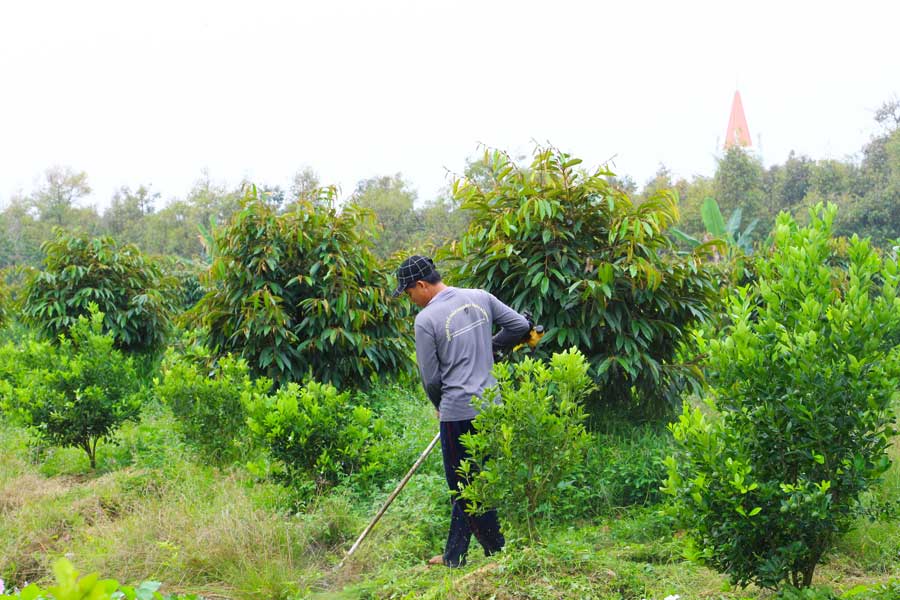 |
| Farmers need to fertilize properly and take care of crops effectively during the rainy season. |
At the beginning of the rainy season, fruit trees often sprout strongly, but the roots are weak because heavy rain makes the soil anaerobic, reducing the ability to absorb fertilizer. The rainy season also makes pests and diseases easy to break out, weakening the trees. Therefore, farmers proactively take measures to care for and protect their crops, especially in fertilizing.
While cutting grass in a 4-hectare garden of durian trees, Mr. Tran Van Trung (An Binh commune) said: “During the rainy season, the water supply to the garden is sometimes continuous and long. Therefore, I dig many auxiliary ditches so that rainwater can quickly drain into the ditches, preventing the garden from being flooded.
More importantly, before the rainy season, I prioritized using decomposed organic fertilizers such as manure, green manure, and biofertilizers to improve soil structure and prevent rapid erosion. In addition, I also cut the grass in the garden to keep it airy and limit pests and diseases, instead of killing weeds to keep the soil in the garden.
Having planted 5 hectares of jackfruit, Mr. Truong Van Thai (Cai Nhum commune) said: “If I spread too much fertilizer this season, it will be difficult for the tree to absorb it, which is not only a waste of money but also causes excess poisoning to the tree and pollutes the environment. Therefore, in the rainy season, I divide the amount of fertilizer into many small applications so that the fertilizer dissolves slowly, minimizing the risk of leaching and better absorption by the tree. I also reinforce the embankment, minimizing walking in the garden, both to avoid shaking the tree roots and to make the soil less compact.”
According to the Vietnam Agricultural Science Institute, the efficiency of fertilizer use in Vietnam is very low, only about 45-50% for nitrogen fertilizer, about 25-35% for phosphate fertilizer and about 60% for potassium fertilizer. Because fertilizer is often lost through such ways as: runoff, deep permeation, being fixed in the soil or evaporation.
Therefore, in the rainy season, it is necessary to choose the right type of fertilizer and apply it according to the manufacturer's recommendations. In particular, it is necessary to apply measures to prevent overflow and deep infiltration in the fertilization method. During the rainy season, it is the time when plants grow and develop very strongly, so the plants will need a lot of nutrients, but it is also the time when the garden is often flooded.
Only inorganic fertilizers should be used, not organic or microbial fertilizers; because if organic fertilizers are used (especially uncomposted organic fertilizers), the organic decomposition process of microorganisms in the soil will occur, causing the loss of oxygen in the soil and easily causing plants to lack air.
Organic fertilizers should only be applied at the beginning of the dry season or before the rainy season begins, combined with the use of Trichoderma antagonistic fungi to enhance beneficial microbial activity in the soil, helping to balance the soil ecosystem and limit pathogenic fungi.
During the rainy season, pay attention to the weather before fertilizing. Fertilize in the morning to avoid rain in the afternoon. Prevent runoff or overflow by lightly tilling the garden before fertilizing and then spreading fertilizer to limit fertilizer loss. However, do not till too deeply to damage the plant's root system.
For fruit trees, you can dig a trench around the base of the tree and cover it with soil after fertilizing the trench; or you can also divide the fertilizer into small amounts and add it at different times, which will also reduce leaching compared to using a large amount at once.
When the tree has root disease, absolutely do not fertilize the base. When the tree has leaf diseases related to leaf fungus, absolutely do not use foliar fertilizers containing high mineral nutrients.
The agricultural sector recommends that during periods of heavy rain, high water levels in rivers and canals (usually between August and November every year), it is necessary to deal with flooding. It is necessary to apply balanced fertilization, using fertilizers with balanced NPK (nitrogen, phosphorus, potassium) and fertilizers with added micro and micronutrients.
Fertilizers that are effective during the rainy season are usually slow-release fertilizers, which help plants not grow too quickly but keep them strong and produce good fruit. For plants that produce fruit seasonally, fertilizers need to be applied according to the growth and development period to be effective.
Mr. Nguyen Thanh Binh - Head of the Department of Crop Production and Plant Protection said: The Department continues to monitor the situation of pests on crops, especially in the current rainy conditions, farmers need to be on guard against some diseases on rice, vegetables, and fruit trees. In the rainy season, plant roots are often weak due to waterlogging, making the soil anaerobic.
On the other hand, heavy rain also makes pests and diseases easy to spread, so it is necessary to apply fertilizers with balanced nutritional ratios. If heavy rains cause waterlogging in the garden, it is necessary to quickly pump all the water out of the embankment to avoid prolonged flooding. It is necessary to increase lime application at the beginning of the rainy season because lime has the effect of releasing nutrients that are tightly held by soil glue, providing calcium directly to the tree to increase fruit quality.
Article and photos: NGUYEN KHANG
Source: https://baovinhlong.com.vn/kinh-te/nong-nghiep/202508/su-dung-phan-bon-trong-mua-mua-5ab15d0/



![[Photo] Hanoi: Authorities work hard to overcome the effects of heavy rain](https://vphoto.vietnam.vn/thumb/1200x675/vietnam/resource/IMAGE/2025/8/26/380f98ee36a34e62a9b7894b020112a8)

![[Photo] Multi-colored cultural space at the Exhibition "80 years of the journey of Independence - Freedom - Happiness"](https://vphoto.vietnam.vn/thumb/1200x675/vietnam/resource/IMAGE/2025/8/26/fe69de34803e4ac1bf88ce49813d95d8)



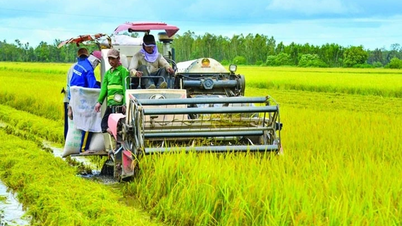

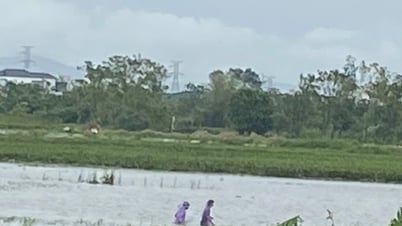

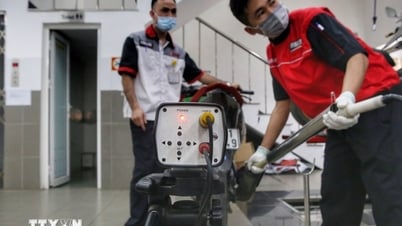





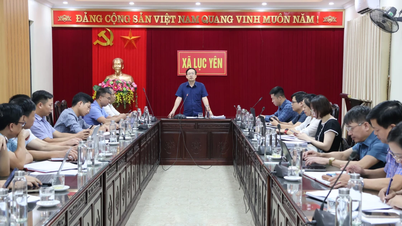









































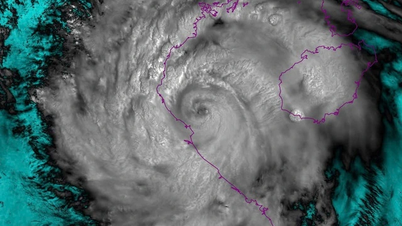





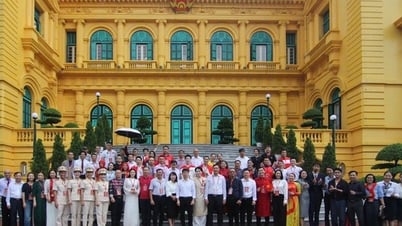



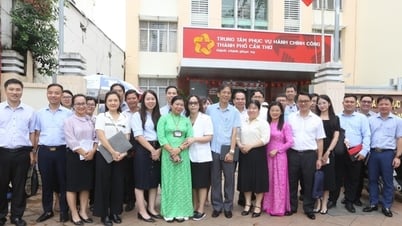

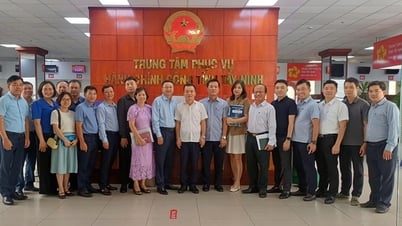


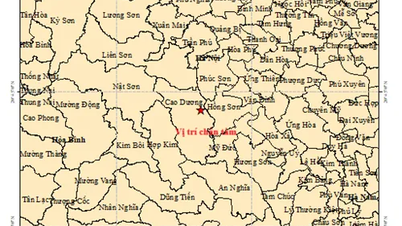


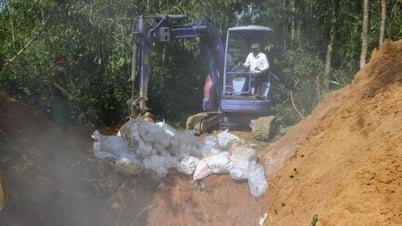

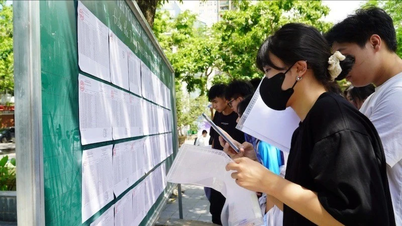



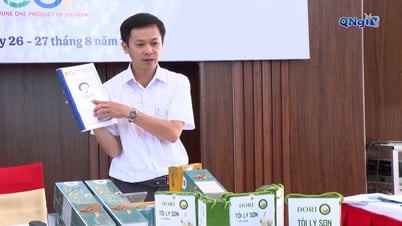









Comment (0)